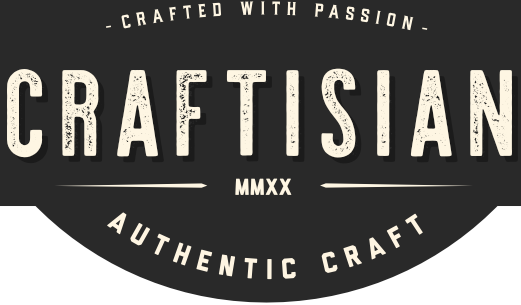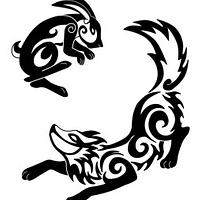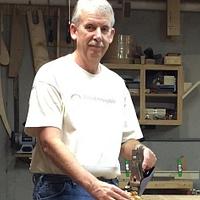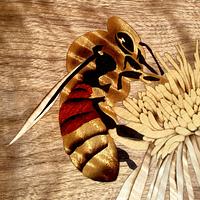
shipwright
in almost 12 years
Open Apron Nesting Tables #2: Ebonizing and Burl Matching
This is
part 2
in a
3 part
series:
Open Apron Nesting Tables
-
An Interesting Commission
-
Ebonizing and Burl Matching
-
Assembly and Finishing Up
- An Interesting Commission
- Ebonizing and Burl Matching
- Assembly and Finishing Up
I didn’t take any photos of the ebonizing process originally, but since several people expressed an interest I made a little video today. It shows the process in real time on a piece of off-cut Walnut from one of the legs.
Ebonizing is a simple process that lots of people do and it works well on any naturally high tannin wood. I understand that with the addition of outside tannin in the form of a tea wash it can be effective on non tannin bearing woods as well although I have no experience with that.
My first experience with the process was probably the same as yours. ……. wondering why the oak trim on my boat was going all black everywhere there was a nail. When I found out that you could harness this disaster to do your bidding I was intrigued and have since used it many times mostly on Oak and Walnut. The first instructions I read said to add the worst, flakiest rusty iron or steel you could find to a jar full of white vinegar and wait three weeks. That worked amazingly well but since I have found many references to using steel wool and that is what I’m now using.
The process is fast and easy.
Here are some before and after photos.
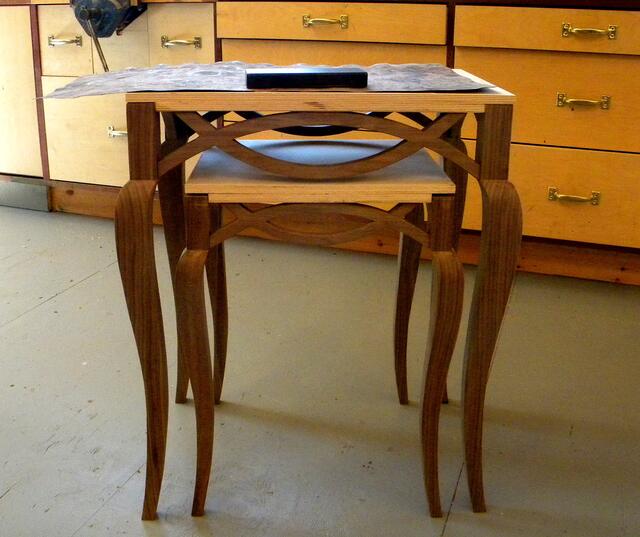
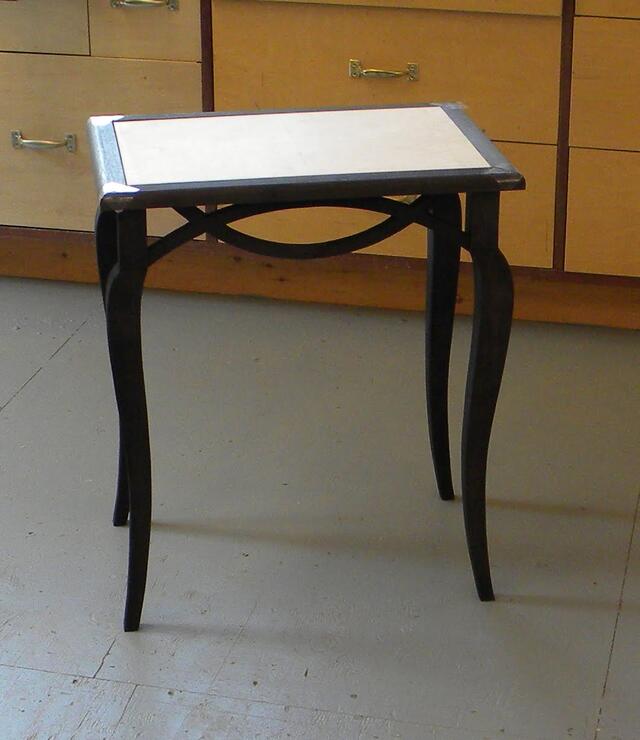
Next up was to get the edge molding done. I don’t use the shaper that much but it does such a nice job on these.
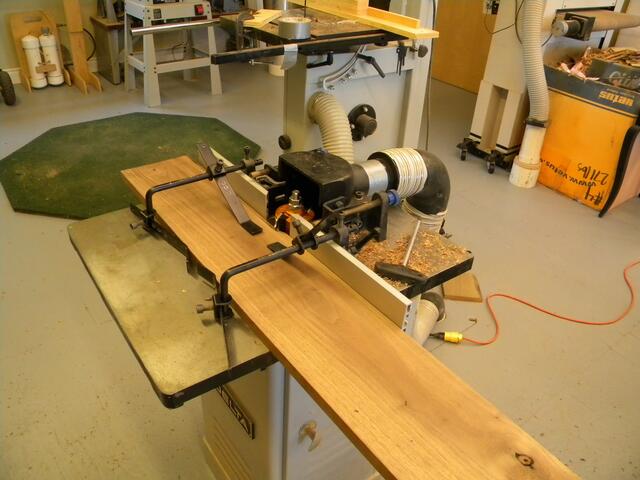
I made the molding to trap the leg ends and to overlap the bottom plywood base for good glue area.
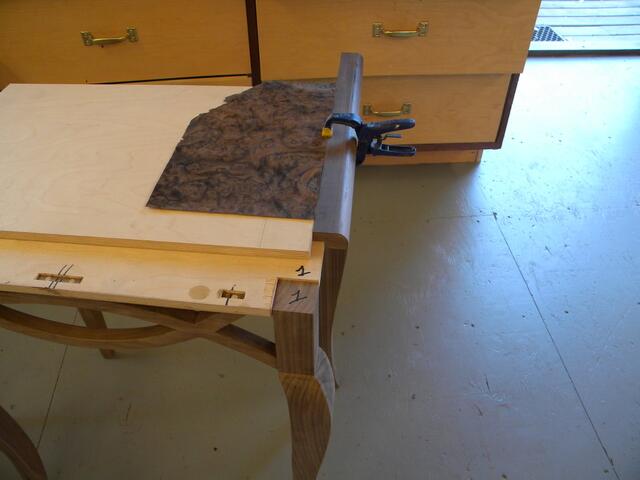
On to the burl Matching. This was another point of consultation with my customer. We looked at the available Walnut burls on Certainly Wood’s website and she chose the one she liked best. I ordered eight pieces for two identical matches in a size more than double what we needed to give us lots of choices.
When it arrived she visited the shop again and we got out my acrylic mirrors and chose a sweet match. Unfortunately, I didn’t take a photo of the match but that doesn’t matter because I have the actual match to show you.
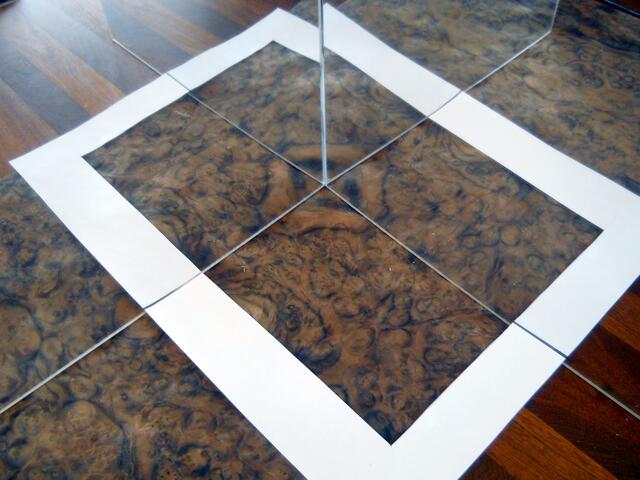
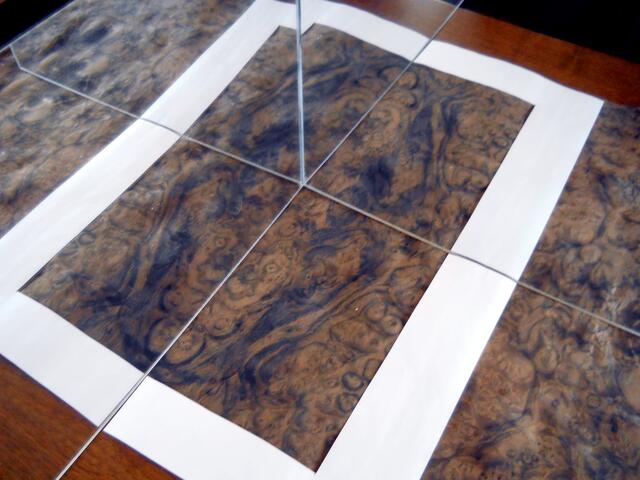
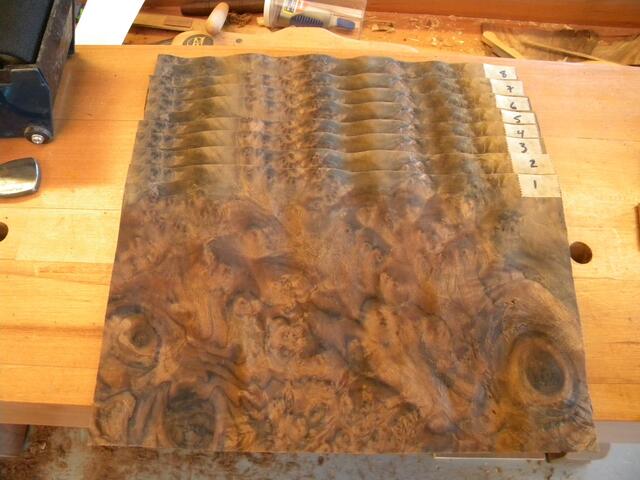
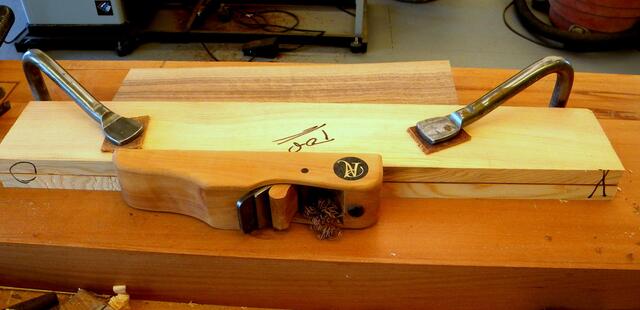
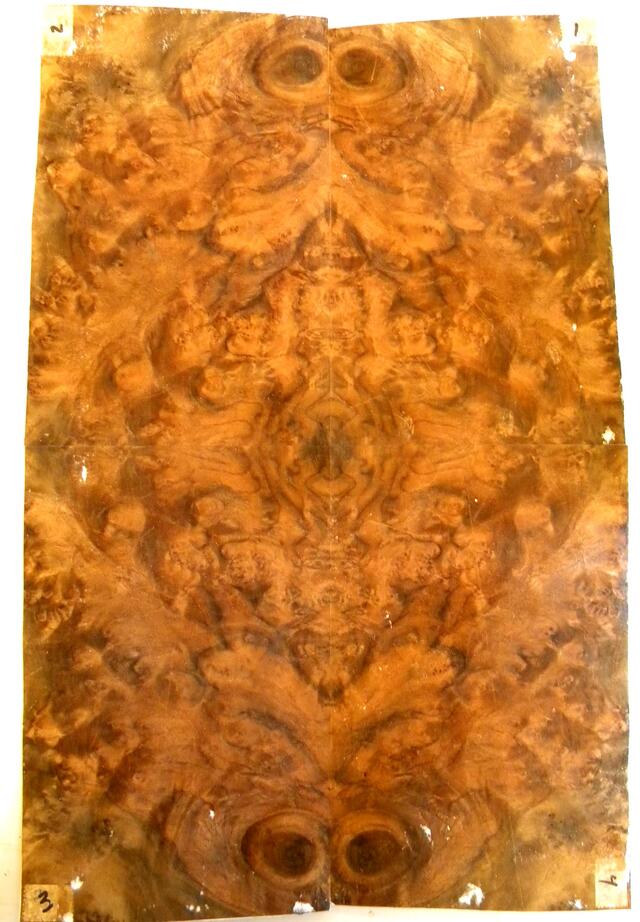
I’ve droned on long enough for one night here I guess. Next one should get the project pretty much finished up.
Thanks for looking in.
Paul
The early bird gets the worm but its the second mouse that gets the cheese.
7 Comments
OK. Noob question here. How did you mirror the veneer? Was is sliced somehow? If so, how?
I’m going to try the ebonizing one day soon. Thanks.
Losing fingers since 1969
Great video Paul. Thanks!
That burl is amazing. There is no seam visible; The matching is perfect.
Certainly wood has a beautiful selection of veneer. I spent sometime going through pictures and drooling. One more thing to learn.
Abbas, Castro Valley, CA
Brian, the burl veneer is sliced at about 1/42" so when you buy eight sequenced leaves they are all taken from a piece of solid burl under 1/4" thick. That means that number one and number eight are very close to identical and the bottom of any leaf is exactly like the top of the next. In a four way match two of the seams use these perfect matches and the third and fourth are usually so close as to be taken for perfect.
The mirrors themselves are used simulate what different matches will look like without cutting the veneer to see them.
I hope this helps. It’s harder to explain than it is to do. :-)
Ian, thanks, I find that they have not only one of the best selections but the best organized and photographed site and purchasing setup.
The early bird gets the worm but its the second mouse that gets the cheese.
Thanks, Paul. I didn’t know they came sequenced from a single slab. For some reason I thought they were just random or something. LOL I get it now.
Losing fingers since 1969
This table is going to be amazing. I’ve used that Iron Acetate stuff now twice. Once on ash and once on oak. The oak is amazing, the ash not so much. It’s a real rush watching the oak go. I slapped some matte poly on it and it just looks great. I can’t wait to see that burl on the tables.
-- Alec (Friends call me Wolf, no idea why)
Thanks for the ebonizing video Paul, good info. Does the ebonizing tend to fade over time or is it permanent?
It’s permanent Tim, although I have a trim around the top of an indoor fish pond in our house that has had a lot of salty water splashed on a couple of areas and it is bleaching out there.
The early bird gets the worm but its the second mouse that gets the cheese.








